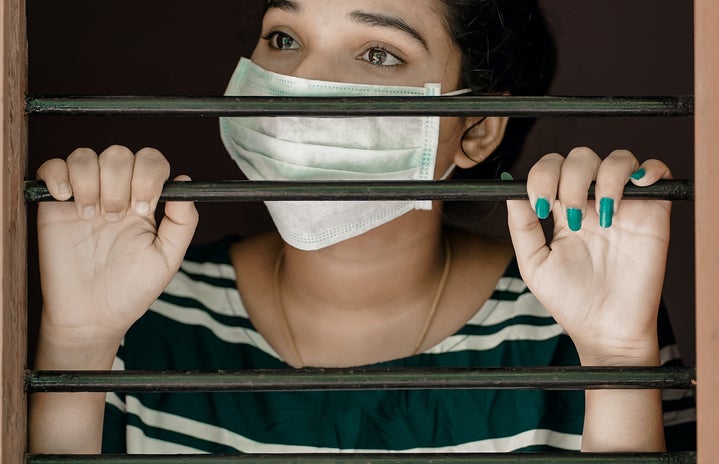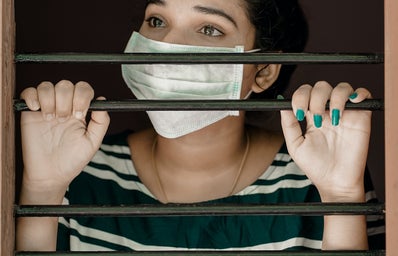A text comes through at 5:59 AM. “Your coronavirus test is positive. This means you had the virus when the test was done.” Your heart sinks. Dark thoughts infect your mind. I’m stuck here for two weeks. Where did I get it from? Who have I seen? How many have I infected? Could I be responsible for killing someone? You are flooded with embarrassment and guilt as you text and call everyone you’ve been in contact with, sentencing them to two painfully lonely weeks in isolation…
For me, coronavirus was more of a virus of the mind than of the body. As a healthy nineteen-year-old, I barely noticed any sign of illness. After a hardcore first week in halls full of late nights and excruciatingly heavy drinking, I assumed there must be a limit to how many hair of the dogs you could do before you start to feel a bit hairy yourself. However, after eating what should have been a delicious pesto pasta dinner, I was left feeling underwhelmed. This initiated a frantic hour of running around my house in a fluster, sniffing every seemingly offensive thing I could think of; alcohols, vinegars, spices, cleaning products and essential oils – but with no avail, I couldn’t smell a thing.
A few days after this panic-stricken episode, I tested positive for the dreaded virus that shall not be named and I realised that my only symptoms were of guilt and anxiety.
Not only was I filled with anxiety because of how sensationalised the virus has been, I was anxious of how much I would miss out by having it. While coronavirus precautions already meant that freshers’ week had been censored, in a personal attempt to prevent the spread of the virus, I had to isolate myself even more.
However, due to me having seemingly no symptoms at all, I made a promise to myself to be productive and to spend this forced time-out to my advantage. I started off by trying to repair the damage I had done to myself during the first week of university by drinking an obscene amount of water, eating masses of vegetables, taking vitamins to try speed my recovery along and even starting to meditate through an app called calm in an attempt to soothe my mind. By getting stuck into my lectures and academic activities, I could keep myself busy. I also drew comfort from obsessively re-watching Euphoria in which I felt personal parallels with the main character Rue (played by Zendaya) because of her own state of social isolation. After coming out of rehab, Rue was seen as a social pariah. This notion was reinforced by fact that people throughout the show constantly said things like “wait you’re alive?”. Her inability to take part in normal teenager things (like drinking and partying) due to a fear of relapse mirrored current students’ inability to take part in normal student rituals due to a fear of a second wave; a national corona virus relapse of sorts.
In my opinion, isolation is only as excruciating as you allow it to be. You are in control of your future. If you set up a good routine of eating healthy, exercising and doing activities that make you and your mind happy, you will be even better off than you were before isolation. Do this and you might just wish to stay isolated in a distraction-free environment to help lay positive habits into your day-to-day life.
Words By: Maisy Healey
Edited By: Anthea Pei


